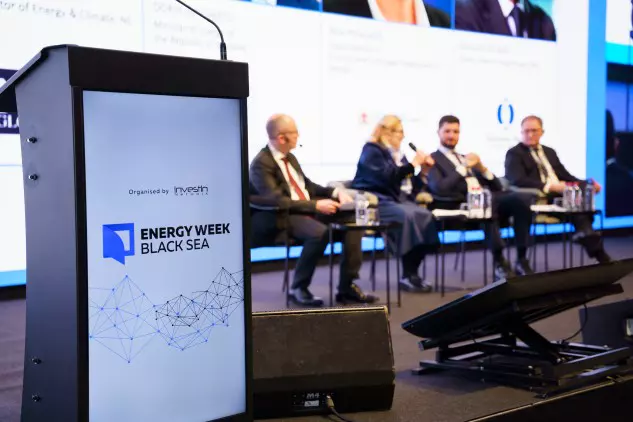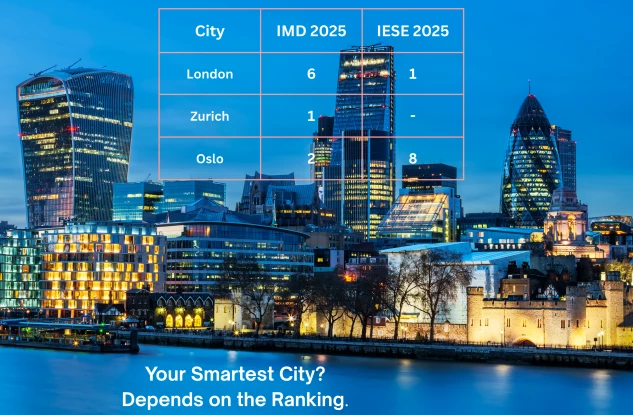From 4–6 November 2025, Barcelona transformed into the world’s most dynamic hub of smart city innovation as the Smart City Expo World Congress 2025(SCEWC) welcomed more than 27,000 participants from 143 countries. Guided by the theme “The Time for Cities,” this record-setting edition underscored a global turning point: cities are stepping into leadership roles to shape a sustainable, resilient, and human-centered urban future, rather than simply reacting to global pressures.
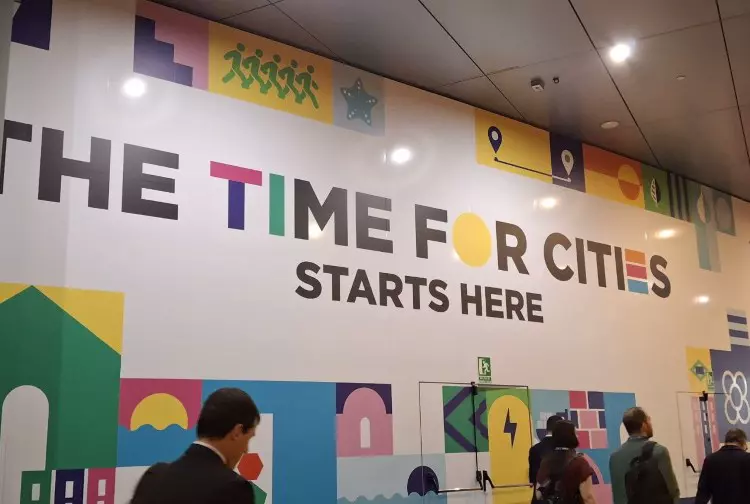
AI, digital transformation and people-centered innovation
The Congress opened with an energizing session that set the tone for three days of deep discussions on AI in cities, digital transformation, urban sustainability, and next-generation solutions that promise to redefine life in metropolitan environments. The atmosphere across the venue was electric — lively debates, new alliances, and a shared understanding that urban leadership is key to addressing global challenges such as climate change, mobility, and social equity.
One of the most memorable moments came from Kuala Lumpur Mayor Maimunah Binti Mohd Sharif, who reminded participants of the essential human purpose behind urban innovation: “We must all aspire to inspire before we expire.” Her words resonated as a call to anchor technological progress in empathy, creativity, and long-term societal benefit.
Technology with purpose: AI, digital twins and ethical innovation
A central message echoed throughout SCEWC 2025 was that technology should amplify human capabilities, not replace them. Cities across the globe are adopting artificial intelligence, digital twins, Internet of Things infrastructures, autonomous mobility, extended reality, and blockchain governance, yet speakers emphasized that these technologies must be deployed ethically, transparently, and inclusively.
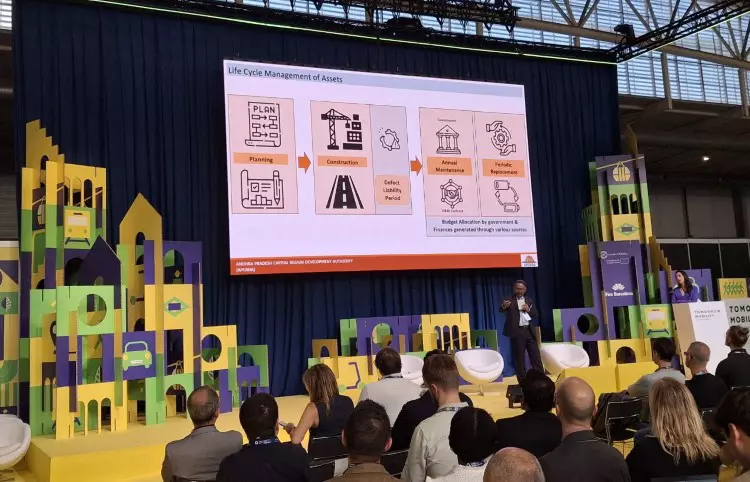
The new AI-enabled Cities area highlighted practical applications of AI in urban mobility optimization, energy grid management, predictive maintenance, intelligent public services, emergency response coordination, and citizen-facing digital platforms. These real-world use cases illustrated how AI can make cities more efficient and better prepared for future disruptions.
As SCEWC Director Ugo Valenti stated: “Artificial Intelligence has established itself as a critical tool, not just for efficiency but for accelerating the transformation that metropolises urgently need. Cities must lead with purpose and accountability, and after this year’s event it is clearer than ever that we are on the right track.” This message captured the balance between innovation and responsibility that defined this year’s Congress.
Across panels and workshops, participants returned repeatedly to a key principle: technology accelerates progress, but residents define its meaning. Inclusive design, citizen participation, and trust-building remain the foundations of truly smart cities.

Smart City Expo World Congress 2025: The global marketplace for smart city solutions
With 592 speakers, 1,190 exhibitors, and delegations from over 850 cities, SCEWC 2025 reaffirmed its position as the world’s leading event for urban transformation. Discussions ranged from climate resilience and energy transition to digital inclusion, smart governance, urban health, and next-generation infrastructure.
Global technology leaders — including Google, Microsoft, Nvidia, Dell, Dassault Systèmes, Deloitte, Veolia, and Urbaser — presented cutting-edge solutions designed to reshape city services. Meanwhile, nearly 350 startups showcased emerging technologies in mobility, energy, e-governance, circular economy systems, and AI-driven sustainability at the Innovation Playground, demonstrating how entrepreneurial ecosystems are driving urban innovation worldwide.

Smart Barcelona in motion: autonomous mobility demonstrations
In addition to the exhibition and conferences, participants experienced Barcelona’s smart city ecosystem firsthand. Among the highlights was the pilot autonomous bus unveiled by Transports Metropolitans de Barcelona (TMB). Shuttles transported attendees to the Olympic Stadium, where they could observe an autonomous vehicle navigating a 2-km route across Montjuïc, demonstrating the potential of AI-powered, zero-emission public transport.
Barcelona’s reputation as a pioneer in sustainable urban development was visible throughout the event. The city’s internationally recognized “superblocks” (superilles) — redesigned urban districts prioritizing pedestrians and green space — exemplify its commitment to reclaiming streets for people, improving air quality, and advancing climate resilience. Its leadership in open data, smart mobility systems, digital public services, and participatory planning reinforces why Barcelona remains a global benchmark for sustainable, people-centered urban transformation.
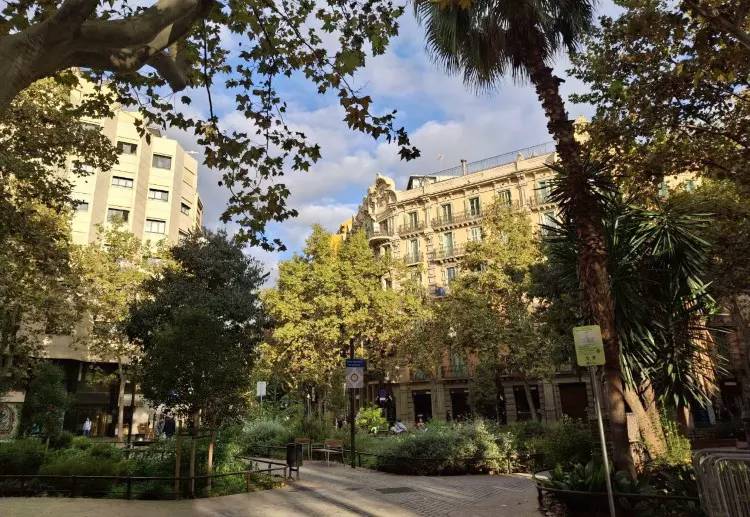
Celebrating excellence: World Smart City Awards
One of the most anticipated moments of the Smart City Expo World Congress 2025 was the World Smart City Awards, honoring outstanding urban projects pushing the boundaries of innovation. Rome received the prestigious Smart City of 2025 award for its sweeping digital transformation strategy — integrating 5G connectivity, data-driven governance, and digital twin technology to improve mobility, public services, and city preparedness for the 2025 Jubilee.
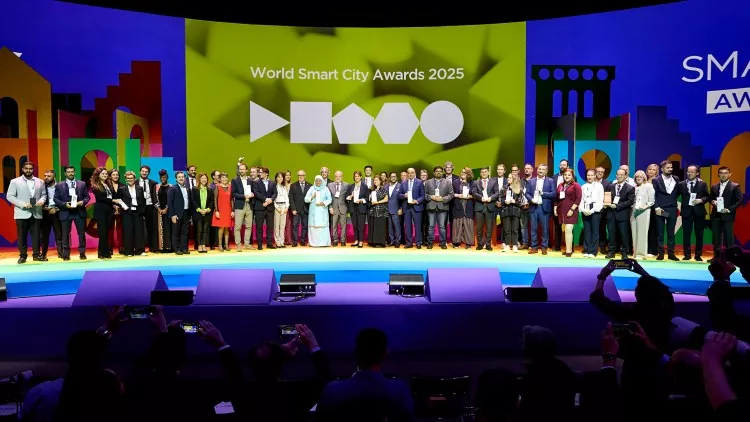
Other award categories highlighted excellence in:
- enabling technologies — advanced digital platforms and AI tools for efficient, transparent governance
- energy and environment — renewable integration, climate adaptation and circular resource systems
- mobility — sustainable, multimodal, and accessible transport innovations
- governance and economy — open data, accountability, and economic resilience strategies
- living and inclusion — public space enhancement, inclusive design, housing accessibility
These awards reinforced a central principle of SCEWC: smart cities flourish when technology and sustainability are aligned with human needs, equity, and long-term well-being.
Global innovation on stage: North Texas Innovation Alliance Challenge
The Congress also hosted the announcement of finalists for the Smart Cities Global Startup Challenge, organized by the North Texas Innovation Alliance (NTXIA). As a consortium of more than 50 municipalities, agencies, corporations, and academic institutions in the United States, NTXIA champions international collaboration and scalable smart-city development.
For its second year at SCEWC, NTXIA revealed finalists from Spain, Canada, Italy, Portugal, and the United States. These startups will compete for funding and pilot opportunities in the U.S., reinforcing the Congress’s role as a platform where innovation moves from concept to deployment. The challenge underscored how global knowledge exchange and cross-border partnerships are essential for accelerating urban transformation.
A call to action for the century of cities
Across 359 sessions, participants emphasized that this century will be defined by cities — and that urban areas must lead the transition toward sustainability, resilience, digital inclusion, and climate action. The Congress highlighted the need for coordinated strategies, strong public–private partnerships, ethical AI governance frameworks, and long-term investment in future-ready digital and green infrastructure.

As Smart City Expo World Congress 2025 concluded, the sense of shared purpose was unmistakable. The ideas, partnerships, and commitments forged in Barcelona pointed toward a new era of human-centered, climate-smart, and technologically empowered cities.
The Smart City Expo World Congress will return to Barcelona on 3–5 November 2026, carrying forward its mission to accelerate the transformation of cities around the world.
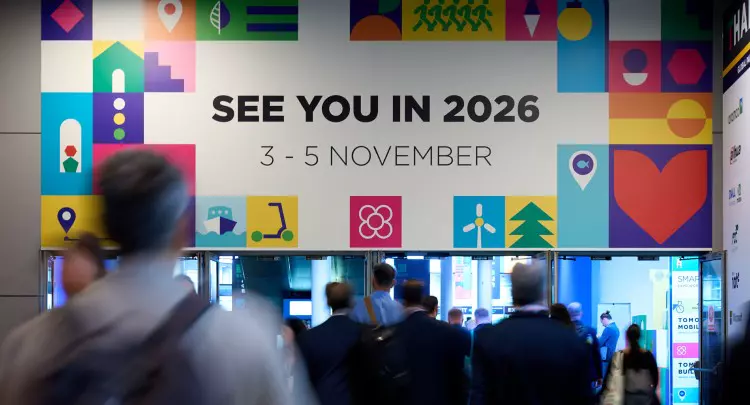
Read about other conferences and exhibitions here
